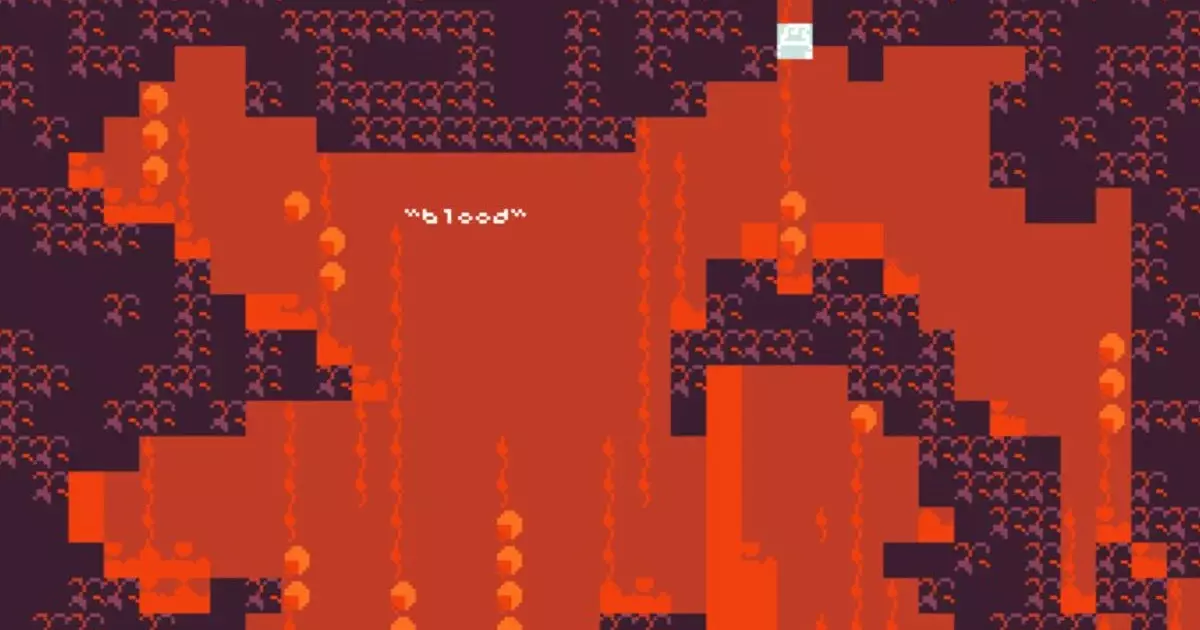In a startling announcement, Droqen, the creative mind behind the enigmatic puzzle game Starseed Pilgrim, has unveiled a forthcoming title that promises to challenge the fundamental concepts of gaming: The End Of Gameplay. With such a provocative title, anticipation surges around what this exploratory 2D platformer aims to achieve. As the indie gaming landscape strives for innovation and depth, Droqen’s latest project stands poised to critique the very essence of what gameplay represents in our entertainment culture.
The Essence of ‘Killing Gameplay’
The phrase “kill gameplay” evokes powerful imagery, suggesting a violent dismantling of conventional gaming norms. Central to this concept is an exploration of the emotional and philosophical dimensions of gaming experiences, diverging from established mechanics that often prioritize action, strategy, or achievement. According to Droqen, this game distills the aspects of Starseed Pilgrim that resonated most deeply with him—elements often overshadowed by traditional gameplay metrics. The bold artistic decision to label the game in such stark, almost nihilistic terms challenges players to confront the very structures of their understanding, raising critical questions about what makes games engaging and meaningful.
Droqen’s Personal Journey in Game Development
Droqen’s narrative is both fascinating and layered. He reveals an almost hesitant genesis for The End Of Gameplay, admitting a reluctance to share his creation with a broader audience. The stark contrast between his intent and its reception highlights a complex relationship with his audience. This juxtaposition invites us to ponder whether some creative expressions are too avant-garde or personal for mass consumption. Yet here lies the beauty of indie development: the ability to probe into the obscure, the misunderstood, and the beautifully strange. Droqen’s journey echoes the plight of many indie creators—battling self-doubt while confronting the commercial pressures to produce something widely palatable.
The Legacy of Starseed Pilgrim
Starseed Pilgrim, released amidst the tides of indie gaming in 2013, is a title that divides players into those who revere its ambition and those who find its cryptic nature off-putting. The game was as much a meditation on exploration as it was a puzzle-solving endeavor, beckoning players to decipher meanings hidden within its simplistic mechanics. Droqen himself acknowledges that the game resonates mostly with indie developers who appreciate its eccentricities—perhaps an exclusive club that relishes its oddities rather than dismissing them outright.
The End Of Gameplay appears poised to dive even deeper into this niche, presenting a collection of experiences that could be described as a poetic anthology. Such an approach is not unprecedented; the indie world has seen various creators packaging short, conceptual works into cohesive experiences. In doing so, Droqen taps into a burgeoning desire for games that defy explanation and challenge players to forge their narratives from ambiguity.
Challenging Traditional Constructs of Gameplay
While Droqen’s endeavor to “kill gameplay” may sound subversive, it raises foundational questions about the very essence of play. What constitutes gameplay? Is it defined by actions and achievements, or can it exist in an atmospheric exploration of feelings? The concept of gameplay, much like an intricate web, spins out into endless definitions, with roots buried deep in the culture of gaming. The End Of Gameplay aims to explore these roots, allowing players to navigate the narrative through their interpretations.
With this intentional dismantling of established frameworks, Droqen confronts a realm hypnotized by metrics and commercialism. The indie gaming scene often flourishes precisely because it offers alternatives to mainstream paradigms—providing fresh air for creativity to thrive amidst choking conventions.
An Indelible Impact on Indie Gaming
As we await the release of The End Of Gameplay on May 12, aligned with the full flower moon, the narrative thus far showcases an intent that resonates with anyone who has ever felt confined by standard gaming expectations. Droqen’s work encourages players to step outside their comfort zones and engage with the surreal and poetic facets of gameplay, enticing those willing to experiment in a space that celebrates ambiguity and innovation. Through this lens, The End Of Gameplay could very well redefine the contours of indie creativity, inviting us to question everything we thought we knew about the nature of gaming.


Leave a Reply